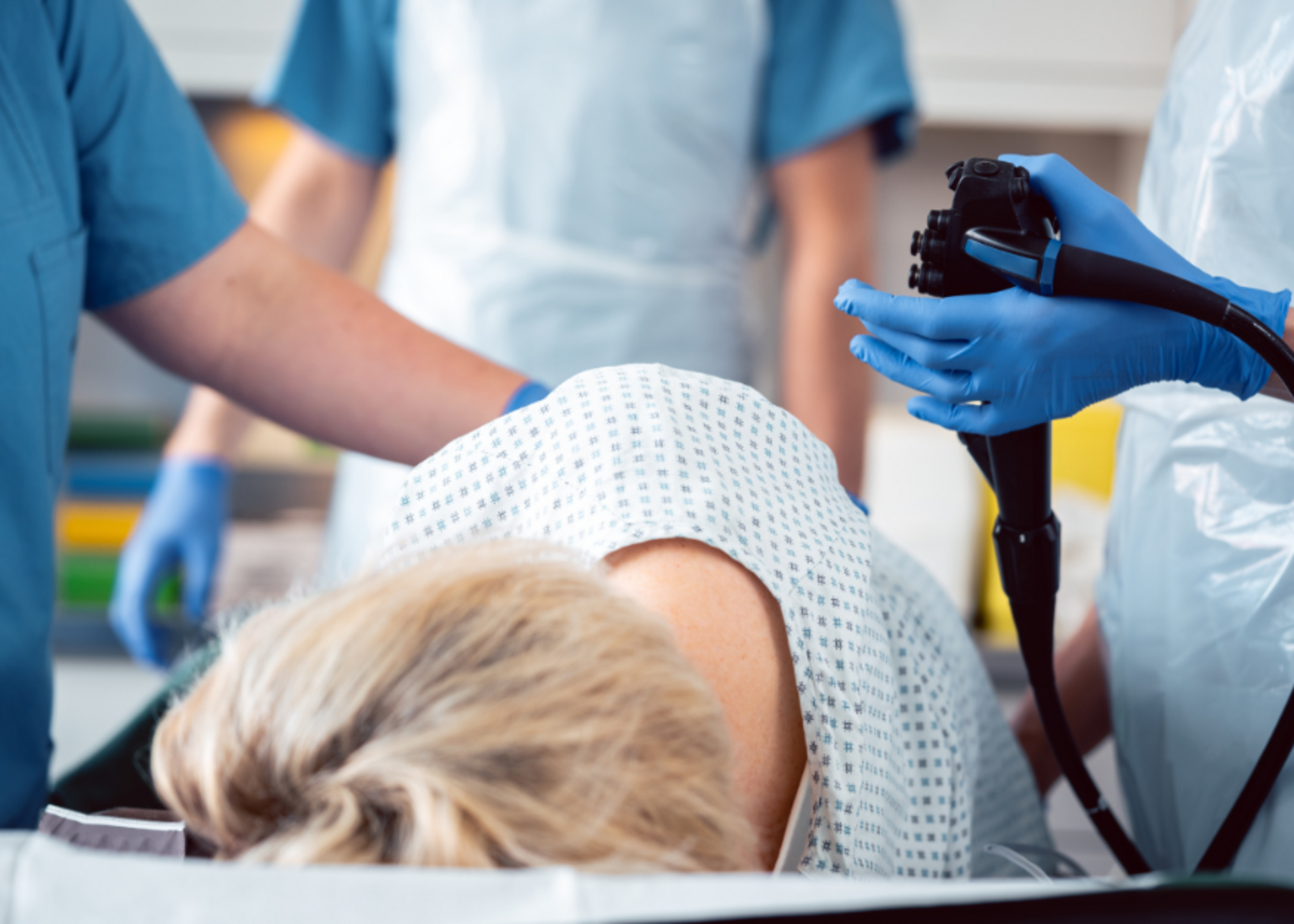Colonoscopy is a vital diagnostic and therapeutic procedure that helps detect and manage disorders of the colon and rectum. As one of the most trusted gastroenterologists in Pune, Dr. Rupesh Lunkad specializes in performing colonoscopies to provide accurate diagnosis and timely treatment for a range of gastrointestinal conditions. In this blog, we’ll explore the purpose, process, and benefits of colonoscopy, along with why it plays a key role in maintaining your digestive health.

What is a Colonoscopy?
Colonoscopy is a minimally invasive procedure that involves the use of a colonoscope, a thin, flexible tube with a camera and light, to examine the inner lining of the colon (large intestine) and rectum. The procedure allows doctors to:
- Detect abnormalities like polyps, tumors, or ulcers.
- Diagnose conditions such as inflammatory bowel disease (IBD), diverticulitis, and colorectal cancer.
- Perform therapeutic interventions, including polyp removal and control of bleeding.
Who Needs a Colonoscopy?
Colonoscopy is recommended for both diagnostic and preventive purposes. You might be advised to undergo the procedure if you experience:
- Persistent abdominal pain or bloating.
- Chronic diarrhea or constipation.
- Unexplained weight loss.
- Blood in stool or rectal bleeding.
- Changes in bowel habits.
Screening for Colorectal Cancer
Regular colonoscopy is crucial for early detection of colorectal cancer, especially if you:
- Are above 45 years of age.
- Have a family history of colorectal cancer or polyps.
- Suffer from long-term inflammatory bowel diseases like Crohn’s disease or ulcerative colitis.
Screening can help identify precancerous polyps, which can be removed before they develop into cancer.
Preparing for a Colonoscopy
Proper preparation ensures a successful colonoscopy with clear visibility of the colon. Dr. Rupesh Lunkad provides the following steps for preparation:
1. Bowel Preparation
- You’ll be asked to follow a clear-liquid diet a day before the procedure.
- A prescribed laxative solution will be used to cleanse the colon thoroughly.
2. Dietary Restrictions
- Avoid solid foods and certain beverages like coffee and red or purple liquids in the days leading up to the procedure.
3. Medication Adjustments
- Inform your doctor about any medications you’re taking, such as blood thinners, aspirin, or diabetes medications. Adjustments may be necessary to avoid complications.
4. Discuss Medical History
- Share details of your medical history, allergies, and previous surgeries with your doctor to minimize risks and ensure the procedure’s success.
What to Expect During the Procedure
Colonoscopy is typically performed in a clinic or hospital setting and lasts about 30-60 minutes.
- Sedation: To ensure comfort, you’ll receive a sedative or mild anesthesia before the procedure begins.
- Insertion of the Colonoscope: The colonoscope is gently inserted through the rectum and guided through the colon. The camera on the scope provides a detailed view of the colon lining.
- Inspection and Intervention: The doctor examines the colon for abnormalities and may take biopsies or remove polyps during the procedure.
- Completion: Once the examination is complete, the colonoscope is carefully withdrawn.
Post-Procedure Care
After the procedure, you’ll be monitored briefly to recover from the sedation. Dr. Rupesh Lunkad advises the following post-procedure measures:
- Temporary Effects: You may experience mild bloating or cramping due to the air introduced during the procedure. These symptoms typically subside within a few hours.
- Diet: Resume your normal diet gradually, starting with light meals. Avoid alcohol and heavy meals for the first 24 hours.
- Activity Restrictions: If sedation was used, avoid driving, operating machinery, or making important decisions for the rest of the day.
- Follow-Up: Dr. Lunkad will discuss the findings and recommend any additional treatment or follow-up appointments if necessary.
Benefits of Colonoscopy
Colonoscopy offers numerous advantages for maintaining and improving gastrointestinal health:
- Early Detection of Colorectal Cancer: It helps identify cancer at an early stage when treatment is most effective.
- Prevention: By removing precancerous polyps, colonoscopy reduces the risk of colorectal cancer.
- Accurate Diagnosis: The procedure provides clear, real-time images of the colon, allowing for precise diagnosis of conditions like IBD or diverticulitis.
- Therapeutic Use: Issues like bleeding, strictures, or polyps can be treated during the same procedure, eliminating the need for additional interventions.
Risks and Complications
While colonoscopy is a safe and routine procedure, minor risks include:
- Bleeding, especially if polyps are removed.
- Perforation of the colon (a rare complication).
- Reactions to sedation.
Choosing an experienced gastroenterologist like Dr. Rupesh Lunkad minimizes these risks, ensuring the procedure is performed with precision and care.
Colonoscopy vs. Other Diagnostic Methods
Unlike imaging tests like CT colonography or barium enema, colonoscopy allows direct visualization of the colon lining and enables real-time therapeutic actions. This makes it the gold standard for colon examination.
Advancements in Colonoscopy
Modern technology has significantly enhanced the effectiveness of colonoscopy. Innovations include:
- High-Definition Imaging: Provides clearer and more detailed visuals.
- Narrow-Band Imaging (NBI): Improves detection of abnormal or precancerous tissues.
- Robotic-Assisted Colonoscopy: Ensures greater precision and comfort.
Dr. Lunkad incorporates these advancements to deliver superior diagnostic and therapeutic care.
When Should You Schedule a Colonoscopy?
Regular screening is recommended starting at age 45, or earlier if you have risk factors. Schedule a colonoscopy if you experience persistent GI symptoms or if advised by your doctor for preventive screening.
Colonoscopy is an essential tool for diagnosing and preventing serious gastrointestinal conditions, including colorectal cancer. With proper preparation, skilled execution, and post-procedure care, it can be a life-saving procedure.
If you’re due for a colonoscopy or experiencing troubling GI symptoms, don’t delay. Book an appointment with Dr. Rupesh Lunkad today and take the first step towards better digestive health.
Read More:
Did you find this topic helpful?